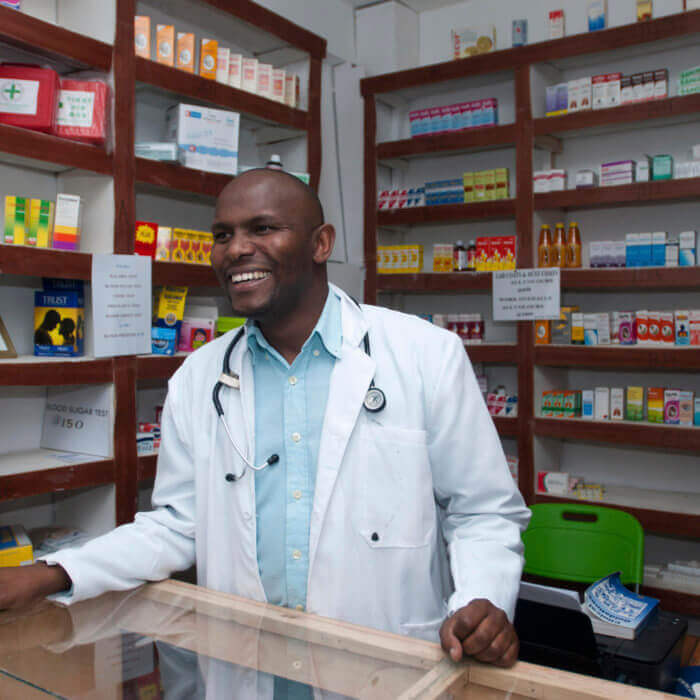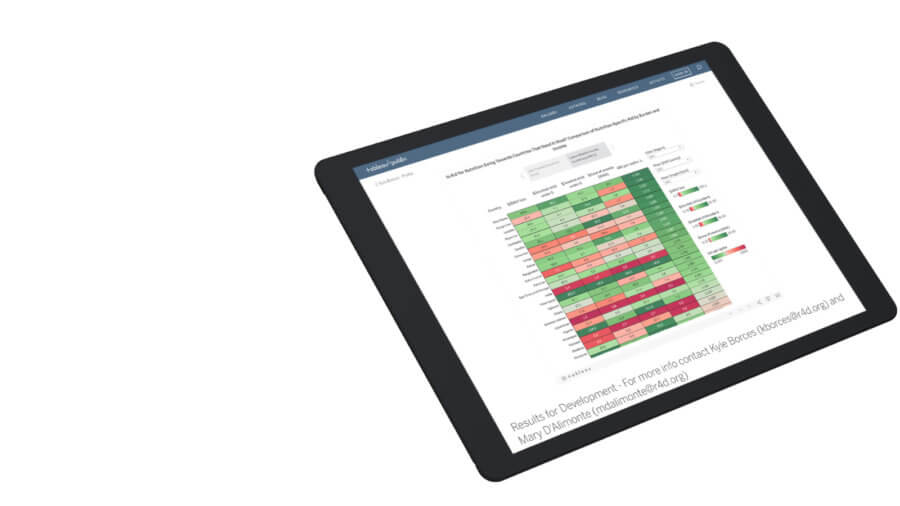Nutrition Financing
The Challenge
Malnutrition is a pervasive problem around the globe that continues to take lives and prevent people from thriving and reaching their full potential. We must invest in nutrition in order to achieve the Sustainable Development Goals of eliminating poverty, achieving zero hunger and saving lives by 2030.
Yet nutrition has historically been a relatively low priority for country governments and donor organizations and often subsumed within larger health-related efforts. This problem is exacerbated by the fact that existing investments, which are often multisectoral and involve many different actors, have been poorly and sometimes inaccurately tracked — and it is impossible to manage what you cannot measure. Change agents around the globe need help answering key questions, including:
- How much will it cost to scale up effective nutrition interventions across sectors?
- How much is already being spent on each intervention, and how much more is needed?
- How much will different actors (country governments, donors, the private sector) each need to contribute to achieve the global nutrition goals?
- How can innovative sources of finance be leveraged for nutrition?
- How can progress be measured and different parties held accountable for their commitments, at the global, national or sub-national level?
- How can finite resources from diverse sources be coordinated and allocated efficiently and equitably?
Our Approach
Results for Development aims to answer these questions, and works with a variety of actors to increase the quality and quantity of funding to address and end malnutrition.
Our extensive expertise in costing, budgeting, resource mobilization and tracking is a combination of strong budget and financial analytics, knowledge of the nutrition field and expertise in supporting policymakers. We work in close consultation with government officials, donors and civil society to understand what data they need to increase funding for nutrition and allocative efficiencies. We provide them with the tools, training, technical support and connections they need to get a bigger slice of the pie — and to use it effectively.
At the global level, R4D developed the first-ever financing scenarios— which included fair-share analysis — to achieve the Global Nutrition targets. Now, R4D is conducting analysis to better track global funding flows from donors to the implementation of high-impact interventions in high-burden countries. Information on how much is spent by donor, country and intervention will be used to improve coordination, resource mobilization and resource allocation. We also supported the founders of the Power of Nutrition in designing this innovative resource mobilization mechanism for nutrition.
Additionally, R4D supports improved nutrition finance in some of the highest-burden countries in the world. Our ongoing program of work in Ethiopia supports the Federal Ministry of Health in developing capacity to track budget allocations and expenditures from all-sources, including on- and off-budget contributions across sectors that are not typically consolidated, and to use this information for improved planning, accountability and stakeholder coordination. We have also supported local change agents in the Indian state of Rajasthan and in Nigeria with improved program costing and financial analysis to inform policy and planning discussions.
Tracking Aid for The WHA Nutrition Targets: Targeting Countries Most In Need
With a growing body of data on donor aid for nutrition, a key question arises: Is aid for nutrition targeted to countries most in need?
















